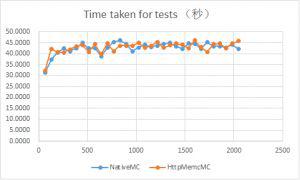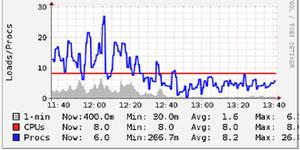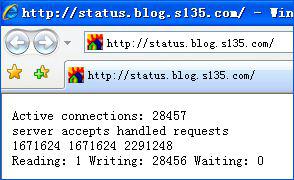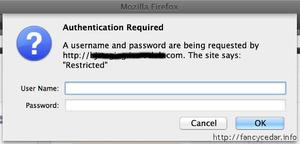vue+element-ui集成随机验证码+用户名+密码的form表单验证功能
在登入页面,我们往往需要通过输入验证码才能进行登入,那我们下面就详讲一下在vue项目中如何配合element-ui实现这个功能
第一步:自定义一个生产随机验证码的组件,其本质是使用canvas绘制,详细代码如下:
<template>
<div class="s-canvas">
<canvas id="s-canvas" :width="contentWidth" :height="contentHeight"></canvas>
</div>
</template>
<script>
export default {
name: 'SIdentify',
props: {
identifyCode: {
type: String,
default: '1234'
},
fontSizeMin: {
type: Number,
default: 16
},
fontSizeMax: {
type: Number,
default: 40
},
backgroundColorMin: {
type: Number,
default: 180
},
backgroundColorMax: {
type: Number,
default: 240
},
colorMin: {
type: Number,
default: 50
},
colorMax: {
type: Number,
default: 160
},
lineColorMin: {
type: Number,
default: 40
},
lineColorMax: {
type: Number,
default: 180
},
dotColorMin: {
type: Number,
default: 0
},
dotColorMax: {
type: Number,
default: 255
},
contentWidth: {
type: Number,
default: 112
},
contentHeight: {
type: Number,
default: 38
}
},
methods: {
// 生成一个随机数
randomNum(min, max) {
return Math.floor(Math.random() * (max - min) + min)
},
// 生成一个随机的颜色
randomColor(min, max) {
var r = this.randomNum(min, max)
var g = this.randomNum(min, max)
var b = this.randomNum(min, max)
return 'rgb(' + r + ',' + g + ',' + b + ')'
},
drawPic() {
var canvas = document.getElementById('s-canvas')
var ctx = canvas.getContext('2d')
ctx.textBaseline = 'bottom'
// 绘制背景
ctx.fillStyle = this.randomColor(
this.backgroundColorMin,
this.backgroundColorMax
)
ctx.fillRect(0, 0, this.contentWidth, this.contentHeight)
// 绘制文字
for (let i = 0; i < this.identifyCode.length; i++) {
this.drawText(ctx, this.identifyCode[i], i)
}
this.drawLine(ctx)
this.drawDot(ctx)
},
drawText(ctx, txt, i) {
ctx.fillStyle = this.randomColor(this.colorMin, this.colorMax)
ctx.font =
this.randomNum(this.fontSizeMin, this.fontSizeMax) + 'px SimHei'
var x = (i + 1) * (this.contentWidth / (this.identifyCode.length + 1))
var y = this.randomNum(this.fontSizeMax, this.contentHeight - 5)
var deg = this.randomNum(-45, 45)
// 修改坐标原点和旋转角度
ctx.translate(x, y)
ctx.rotate(deg * Math.PI / 180)
ctx.fillText(txt, 0, 0)
// 恢复坐标原点和旋转角度
ctx.rotate(-deg * Math.PI / 180)
ctx.translate(-x, -y)
},
drawLine(ctx) {
// 绘制干扰线
for (let i = 0; i < 8; i++) {
ctx.strokeStyle = this.randomColor(
this.lineColorMin,
this.lineColorMax
)
ctx.beginPath()
ctx.moveTo(
this.randomNum(0, this.contentWidth),
this.randomNum(0, this.contentHeight)
)
ctx.lineTo(
this.randomNum(0, this.contentWidth),
this.randomNum(0, this.contentHeight)
)
ctx.stroke()
}
},
drawDot(ctx) {
// 绘制干扰点
for (let i = 0; i < 100; i++) {
ctx.fillStyle = this.randomColor(0, 255)
ctx.beginPath()
ctx.arc(
this.randomNum(0, this.contentWidth),
this.randomNum(0, this.contentHeight),
1,
0,
2 * Math.PI
)
ctx.fill()
}
}
},
watch: {
identifyCode() {
this.drawPic()
}
},
mounted() {
this.drawPic()
}
}
</script>
第二步:使用该组件:
我们首先新建一个vue组件,在该组件进行布局,其中还包括用户名和密码的验证(这只是前端的简单验证,真实项目中还需要请求登入接口进行后端验证)
<template>
<el-form class="login-form" status-icon :rules="loginRules" ref="loginForm" :model="loginForm" label-width="0">
<el-form-item prop="username">
<el-input size="small" @keyup.enter.native="handleLogin" v-model="loginForm.username" auto-complete="off" placeholder="请输入用户名">
<i slot="prefix" class="icon-yonghu"></i>
</el-input>
</el-form-item>
<el-form-item prop="password">
<el-input size="small" @keyup.enter.native="handleLogin" :type="passwordType" v-model="loginForm.password" auto-complete="off" placeholder="请输入密码">
<i class="el-icon-view el-input__icon" :style="fontstyle" slot="suffix" @click="showPassword"></i>
<i slot="prefix" class="icon-mima"></i>
</el-input>
</el-form-item>
<el-form-item prop="verifycode">
<!-- 注意:prop与input绑定的值一定要一致,否则验证规则中的value会报undefined,因为value即为绑定的input输入值 -->
<el-input v-model="loginForm.verifycode" placeholder="请输入验证码" class="identifyinput"></el-input>
</el-form-item>
<el-form-item>
<div class="identifybox">
<div @click="refreshCode">
<s-identify :identifyCode="identifyCode"></s-identify>
</div>
<el-button @click="refreshCode" type='text' class="textbtn">看不清,换一张</el-button>
</div>
</el-form-item>
<el-checkbox v-model="checked">记住账号</el-checkbox>
<el-form-item>
<el-button type="primary" size="small" @click.native.prevent="handleLogin" class="login-submit">登录</el-button>
</el-form-item>
</el-form>
</template>
第三步:生产随机码与进行登入验证
<script>
import { isvalidUsername } from '@/utils/validate'
import SIdentify from '@/components/identify/identify.vue'
export default {
name: 'userlogin',
data() {
// 用户名自定义验证规则
const validateUsername = (rule, value, callback) => {
if (!isvalidUsername(value)) {
callback(new Error('请输入正确的用户名'))
} else {
console.log('user', value)
callback()
}
}
// 验证码自定义验证规则
const validateVerifycode = (rule, value, callback) => {
if (value === '') {
callback(new Error('请输入验证码'))
} else if (value !== this.identifyCode) {
console.log('validateVerifycode:', value)
callback(new Error('验证码不正确!'))
} else {
callback()
}
}
return {
fontstyle: {
},
loginForm: {
username: 'admin',
password: '123456',
verifycode: ''
},
checked: false,
identifyCodes: '1234567890',
identifyCode: '',
loginRules: { // 绑定在form表单中的验证规则
username: [
{ required: true, trigger: 'blur', validator: validateUsername }
],
password: [
{ required: true, message: '请输入密码', trigger: 'blur' },
{ min: 6, message: '密码长度最少为6位', trigger: 'blur' }
],
verifycode: [
{ required: true, trigger: 'blur', validator: validateVerifycode }
]
},
passwordType: 'password'
}
},
components: {
SIdentify
},
created() {
},
mounted() {
// 验证码初始化
this.identifyCode = ''
this.makeCode(this.identifyCodes, 4)
},
computed: {
},
props: [],
methods: {
// 通过改变input的type使密码可见
showPassword() {
this.fontstyle === '' ? (this.fontstyle = 'color: red') : (this.fontstyle = '') // 改变密码可见按钮颜色
this.passwordType === ''
? (this.passwordType = 'password')
: (this.passwordType = '')
},
// 点击登入按钮
handleLogin() {
this.$refs.loginForm.validate(valid => {
if (valid) {
this.$store.dispatch('Login', this.loginForm).then(res => {
this.$router.push({ path: '/dashboard/dashboard' })
})
}
})
},
// 生成随机数
randomNum(min, max) {
return Math.floor(Math.random() * (max - min) + min)
},
// 切换验证码
refreshCode() {
this.identifyCode = ''
this.makeCode(this.identifyCodes, 4)
},
// 生成四位随机验证码
makeCode(o, l) {
for (let i = 0; i < l; i++) {
this.identifyCode += this.identifyCodes[
this.randomNum(0, this.identifyCodes.length)
]
}
console.log(this.identifyCode)
}
}
}
</script>
<style scoped>
.identifybox{
display: flex;
justify-content: space-between;
margin-top:7px;
}
.iconstyle{
color:#409EFF;
}
</style>
最后的效果如下,当我们输入之后鼠标失去焦点就会进行验证:
总结
以上所述是小编给大家介绍的vue+element-ui集成随机验证码+用户名+密码的form表单验证功能,希望对大家有所帮助,如果大家有任何疑问欢迎给我留言,小编会及时回复大家的!
以上是 vue+element-ui集成随机验证码+用户名+密码的form表单验证功能 的全部内容, 来源链接: utcz.com/z/339706.html







